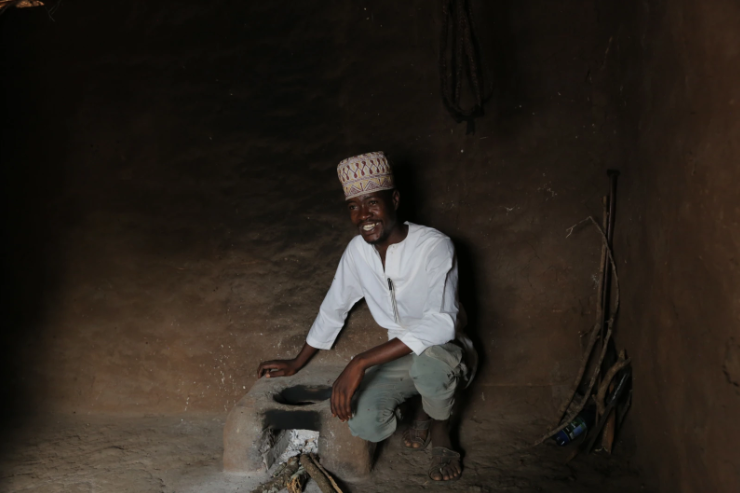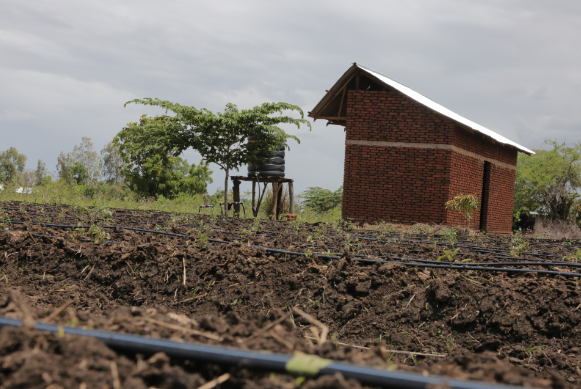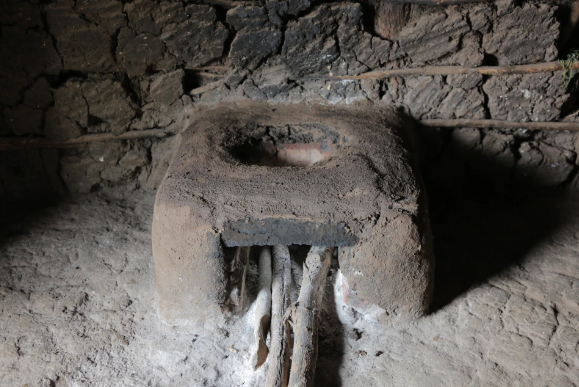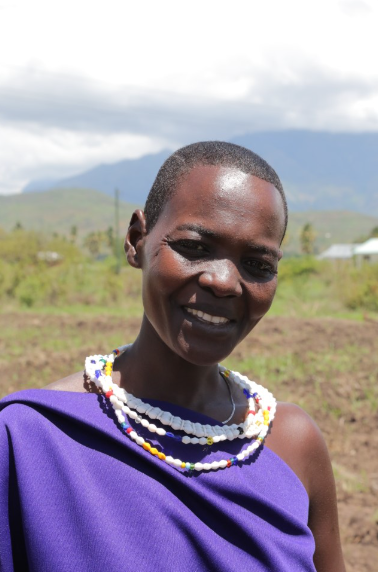
Everything about Morogoro in Tanzania is beautiful. The landscape with the towering mountains, the colour palette of bright blue sky against green plains and the Maasai, who walk straight-backed with their cattle as if time has stood still. The whole scene takes your breath away.
 A year ago, Rajabu Amadi lived on the streets, lived on less than a dollar a day, and was unemployed. Now he is a major supplier of climate efficient stoves in a project that has inspired the Maasai and young people to grow vegetables.
A year ago, Rajabu Amadi lived on the streets, lived on less than a dollar a day, and was unemployed. Now he is a major supplier of climate efficient stoves in a project that has inspired the Maasai and young people to grow vegetables.
Unfortunately, so did the number of young people who did not have a job, farmers who could not survive on what they grew, and children who lacked schooling. Until it all started to change around two years ago.
“I was one of those who had no future. Now I am an employer and major supplier,” smiles Rajabu Amadi.
Rajabu lives in Muomero where previously many young people were dropping out of work and school. Together with our partner, NCA has started a project to get young people out of unemployment. One of those who joined the project was Rajabu.
“I lived on less than a dollar a day, but now I have eight times as much to live on. I was unemployed and didn't know what to do. I just hung around in the streets,” he says.
The project consists of several parts that include addressing and changing negative mindsets about farming as well as training in climate-smart agriculture and market access. So far, 600 young people have come out of unemployment. For Rajabu, it was the climate efficient stoves that saved the day.
“The new stoves use much less wood, a maximum of one to three logs per day. It can be used both outside and inside, and the food is finished much faster,”, he says with great enthusiasm and points towards one of the houses where he has installed the oven.

In Muomero in Morogoro, young people receive training in solutions that will make them more resistant to climate change. NCA has built a water tank, and the young people water using drip irrigation.

A new climate-efficient stove.
Deforestation is a big problem. Firewood is used for both cooking, heating, and house building. The new stoves will help reduce the amount of wood needed.
“As you can see, the oven is made of solid masonry and the more you use it, the stronger it becomes.”
The demand for the stove has actually been so great that Rajabu has had to hire more people.
“In one month, I have made 84 ovens. I have trained unemployed youth so that we can produce for everyone who has ordered,” he smiles.
For Rajabu, the project has changed his life.
“I am so happy that I got this opportunity. I have received training in everything from financial management to running a business, and it means a lot to me that the ovens are so popular.”
For the Maasai people, life has always revolved around cattle, but climate change has brought drought to the region, and they need to find other ways to secure a safe supply of food and now new vegetables and irrigation systems surround their homes.
Anna Pyanga (pictured to the right) and Viek Luka are Maasai. They have received training in agriculture and smart climate solutions from NCA. Sticking to just cattle is no longer an option for them. For around ten dollars, they were able to buy a starter pack with quality seeds and fertilizer as well as having an agronomist follow them closely.
“We are experiencing drought and a lack of water, so securing both food and an income has been important,” says Anna.
Although the Maasai people traditionally have subsisted on cattle, retraining for agriculture has gone well. Viek comments:
“Fortunately, we have not encountered so many challenges. It has been exciting to learn something new and to use this knowledge to grow our own food. We have been motivated to continue farming. It has also been nice to see how the community has shared and learned from each other in this process,” she says.

Hadija Shabani Ally was also unemployed when she joined the project. Today she is the project`s Chief Farmer. The 28-year-old is a single mother with breadwinner responsibilities.
“For me it has been a personal driving force that I have three children to look after, but I think that for all young people here it has been a good project,” says Hadija.
She says that unemployment has many downsides for the village, such as increased violence, more people drinking, and more assaults.
“When young people learn to farm, they don't have time to be violent or get drunk. You get tired from working in the fields all day, so the focus shifts. Besides, having an income is preventive on so many levels,” emphasizes Hadija.
She notices a big difference in the village after several young people now have a job to go to.
“They have learned about climate-smart agriculture, irrigation systems, and that they can change their own lives. It means so much to so many,” she concludes.
Text is written by, and all photos taken by Anette Torjusen.